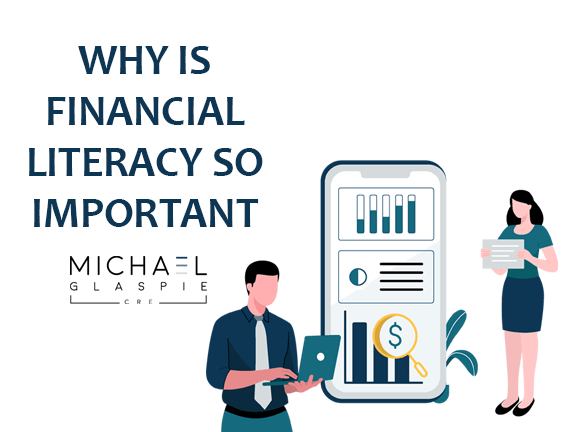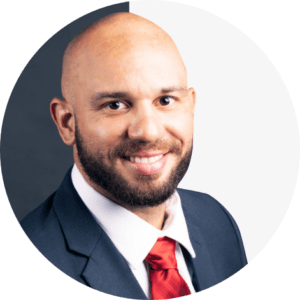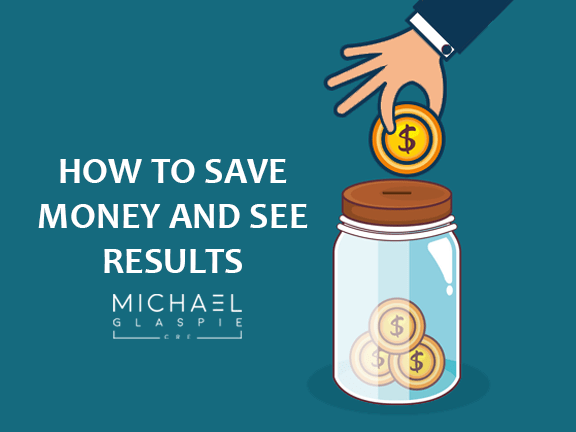When you think of the term “literacy,” what is it that comes to your mind? Reading? Understanding? Well, if you ask Webster, literacy is defined as competence or knowledge in a specified area which is exactly what we are talking about now. Financial literacy.
Learning Financial Literacy
I always found it funny that many people will devote their lives to their pastime hobbies, such as sports, fashion, or new trendy talk shows but the majority of our society won’t dedicate time to learning the ins and outs of our one and only driving economic force…….MONEY!
Personal finances are not currently taught in our school systems. Well, I should say, taught as a standard curriculum. Which completely baffles me. How can we continue to raise the next generation to lead our nation, when most have never had to balance a checkbook, maintain a budget, or plan for retirement until they are well into their young adult life?
It is always disheartening to me when I ask a friend or a colleague, what their financial goals are in the future and their response is either non-existent or let’s say ‘lacking conviction.’ Many times over I have heard one say, “Aw man, if I just had an extra $50,000, I would get rid of this debt” or even something more hypothetical like, “I will be rich one day.” And yet their actions never changed. Not one single thing. They continue to do the things they have done in the past “x” amount of years. We all know doing the same action and expecting a different outcome is quite literally insanity!
Changing Your Perspective on Wealth
Where did this belief that wealth could only be attained by a certain person originate? People seem to associate wealth with corruption or greed. So, you will hear many excuses ranging from “I don’t want to be rich too many people will start to come after me,” or they say, “I don’t want to be rich, I enjoy what I do,” knowing full well that they arrive every day less and less enthusiastic about their occupation.
Many people never achieve their full financial potential, or desire because they were never exposed to the possibilities of their potential. Hell, even our wonderful collegiate system doesn’t teach personal finances. Those who pursue finance or accounting degrees are really only learning to manage wealth, not create it.
One thing I have learned over my lifespan is that truly wealthy people tend to be quite generous. Not only monetarily, but in time and energy. Many truly wealthy people have given back to communities time and time again. Bill and Melinda Gates, Chuck Feeney (Duty Free pioneer), and Warren Buffet just to name a few. When you have enough money that it doesn’t become a priority anymore, you free yourself to begin to give back.
Defining Wealth
I think this is a good time to define wealth. Webster defines it as “an abundance of valuable material possessions or resources.” Wealth was once described to me as, “the length of time you could sustain your lifestyle when and if you stopped working.” This opened my eyes to an entirely new way of thinking. Wealth, by that definition, meant having a sustainable, substantial, cash flow. Month in and month out, cash would be coming in no matter if you were working at your 9 to 5, or if you were sitting on the couch watching your favorite sitcom. THAT is true wealth!
The Impact of Financial Literacy on Our Communities
Why is this such an important aspect of our society? It’s really simple. Wealth and access to money amplify the character of the individual who attains it. If you are genuinely a good person, money would make you great. If you are an unethical soul, money would only amplify your ability to do more damage. You’re a good person, right? So, by focusing on YOUR ability to generate more income you are increasing your ability to HELP OTHERS. The more financially free members of our society are, then the more giving there will be. At least I would like to think that would be true. Either way, people would experience less stress with the number one stress-inducing factor taken care of. Imagine a life with no financial worries. How much free time would you have with the family? How willing would you be to explore new states or countries? How likely would you be to give back to your communities, whether it be financially or physically?
Teaching our children and ourselves the inner workings of our nation’s currency can truly impact our family legacy. Budgeting, saving, and investing all require some degree of knowledge in order to do it effectively. The good news is it’s never too late. Start now! Educate yourself and your family in personal finance. I know it may not seem intriguing or sexy. However, when it changes your family legacy it will be worth it!




